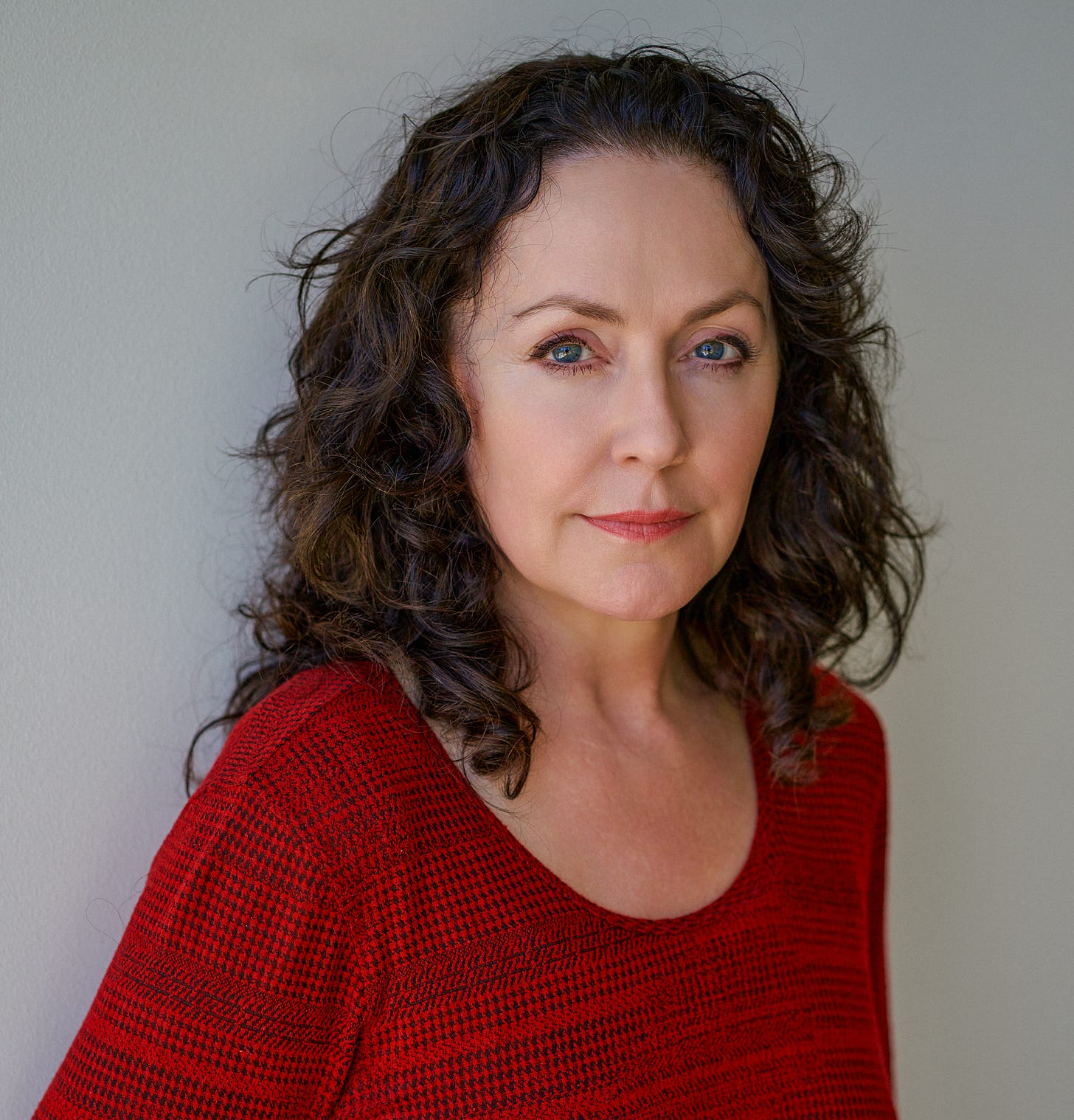Addressing Harm, Helping Others, and Embracing Hope: A Conversation With Rene Denfeld
On owning our mistakes, foster care, the importance of scientific backing, collective responsibility for each other, and the potency of love. And pie!
Intimate conversations with our greatest heart-centered minds.
Rene Denfeld is one of my favorite humans on the planet. She’s kind beyond measure. Wicked smart. Funny. Gifted. Loves animals. Loves humans. And is devoted to making the planet a better place. I’m lucky to call her a friend.
She’s also one of my favorite writers. Her novels hold this rare combination of lyrical magnificence and edge-of-your-seat suspense. Each addresses profound societal shortcomings without being didactic. Her first novel, The Enchanted brings the reader into the minds—and hearts—of death row prisoners. The Child Finder and The Butterfly Girl explore child abuse and the cycles of trauma.
Rene is well acquainted with trauma. Raised in poverty, she ended up on the streets at fifteen, where she slept on park benches, with newspapers as a blanket. She went on to become the Chief Investigator at a public defender’s office in Portland, with a penchant for death row cases. She has adopted three children from foster care and fostered others. Her writing has been praised by Margaret Atwood as “astonishing,” and she has been honored with literary awards including the Prix du Premier Roman Etranger, and listings from the American Library Association and for the Andrew Carnegie Medal.
In her gorgeous new novel, Sleeping Giants, Rene examines the harm that can be committed in the name of good — as well as the potency of love. When Amanda Dufresne, adopted as a baby, learns in her twenties that she has an older brother, she sets out to find him. With the help of a retired police officer, she discovers he had been sent to a home for disturbed boys. In her search, Amanda uncovers decades of crimes—and sets herself on a collision course with the truth.
Rene is never one to shy away from the sorrow and horror of life. Likewise, she never diminishes the love, joy, and hope. No matter the darkness, there is always the beautiful brightness of being alive.
It was such a pleasure to speak with Rene. As always, I learned so much. I think you will, too! Also: Rene filled in the first Beyond Questionnaire. You can read it here. And next Thursday, I’ll be sharing Rene’s brilliant insights on craft. She’s truly a master, so you won’t want to miss that.
⭐️ Exciting News! Rene is generously gifting three readers an autographed copy of Sleeping Giants! If you’d like to be one of the recipients, please add “Giants” after your comment. The winners will be chosen at random on Monday, April 1st and notified by email. This book is so so so good! I know you will all enjoy it! (Shipping is limited to the United States)
I want to start by talking about Martha King. She’s the director of Brightwood, a correctional institution for disturbed boys, and she employs this terrifying treatment called “holding time.” The young boys are tightly wrapped in rugs, often with her lying on top of them, until they allegedly release all their old trauma. It profoundly harms them psychologically and physically, even kills a few. It also takes a toll on Martha. Yet she’s devoted to this practice because she genuinely believes she’s helping these boys. In your acknowledgements you write: “The character of Martha King represents many people I’ve met in my work who believe they are doing the right thing, even as they commit the worst harms.” Can you speak to this notion of committing harm in the name of good?
Absolutely. I'm really glad you're asking this because this is the impetus behind this book. It's something I've wrestled with for a long time. For many years I've been involved in justice work. It's my day job. A lot of my work has been in death penalty cases, including exonerating innocents. I also work with children and rape trafficking victims. In addition, I'm a longtime foster adoptive parent. The bulk of my life is addressing harm.
If you look at the world as a whole: slavery, genocides, segregation, the holocaust, the internment of Japanese Americans into concentration camps, these are all atrocities committed by people who thought they were in the right. In fact, I think you could say most harm in the world comes at the hands of people who believe they are doing the right thing.
Take mass incarceration. You have laws that were voted in by people convinced that having very severe, punitive sentences for people that are poor or homeless or addicted was the right thing to do. So, we sent millions in prison and now are seeing the repercussions, including massive homelessness, because once released, these people can’t get jobs or housing.
It's a terrible situation, and it was created by people who thought they were doing good, and instead of being able to see that, a lot of them look at those results and think the answer is…more incarceration.
A lot of times in fiction, we focus on bad guys that are really bad. He’s a sociopath, operating outside the moral wheel of society, doing terrible things. He’s clearly a monster. It's pretty simplistic and obvious. But the truth is, most harm in our world is committed by people who are convinced they’re in the right. I wanted to examine that in Sleeping Giants.
You’ve said your greatest strength in admitting you’re wrong.




